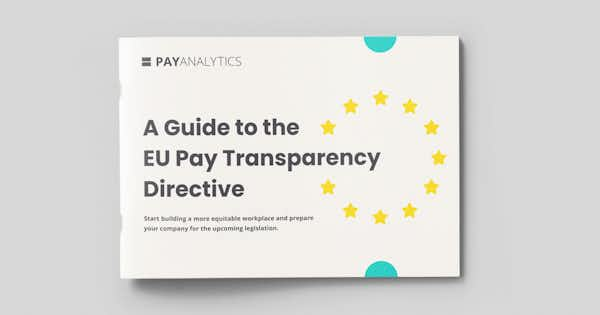Guida alla certificazione della parità di genere in Italia | Scarica il nostro e-book gratuito
Brazil Amends Labor Code to Require Gender Pay Equity
Brazil issued a Federal Decree that clarifies what companies will need to do to comply with equal pay reporting requirements—including which information employers will need to provide, when, and to whom.
Brazil Establishes Reporting Guidelines for Compliance with Gender Pay Equity Law

What you will learn in this article
In this article, we aim to make Brazil’s Equal Pay Law easier to digest and to give a basic overview of its requirements, as well as those of related legislation that employers will need to have a basic understanding of in order to comply. This article serves as an introduction and does not constitute legal advice.
- Describe the requirements of Brazil Equal Pay Law (No. 14.611/2023; in Portuguese, it’s called LEI Nº 14.611) and the penalties for non-compliance.
- Clarify what’s expected of employers, including which data employers are required to provide to the government (and how).
- Give insight into how to prepare for compliance with Brazil’s Equal Pay Law, including best practices, steps you can take now, and potential outcomes.
Overview of Brazil’s Equal Pay Law No. 14.611/2023
In July 2023, Brazil introduced a new Pay Equality Law 14.611/2023 (“the Law”) to strengthen and expand the mandates of existing federal legislation. At that time, it was unclear how employers would meet reporting requirements for the new law. The law became effective immediately, meaning employers must comply now. To learn how the PayAnalytics' solution can help you prepare, reach out to us for your 1:1 with a pay equity specialist.
Subsequently, on Nov. 27, 2023, Brazil issued a Federal Decree No. 11.795/2023 (“the Decree”) that clarifies what companies will need to do to comply with reporting requirements—including which information they will need to provide, and to whom. On the same date, Ordinance No. 3.717/2023 (“the Ordinance”) was released to regulate the Decree to outline administrative procedures for the Ministry of Labor to act upon the mechanisms of the Law and Decree.
- Law No. 14.611/2023 introduces measures for increasing pay and gender equality and announces basic reporting requirements for employers.
- Decree No. 11.795/2023 clarifies data to be sent to the Ministry of Labor in fulfillment of the Pay Equality Law.
- Ordinance No. 3.717/2023 specifies administrative procedures governing the Law and Decree.
Brazil’s Equal Pay Law 14.611/2023 came into effect on July 4, 2023
The Brazilian Federal Constitution and Labor Laws (Pt: Consolidação das Leis do Trabalho) have long included provisions that establish “equal pay for equal work”—but the country has faced difficulty in enforcing these requirements. As of 2023, the World Economic Forum’s Gender Gap Index ranked Brazil at 110th for “wage equality for similar work”, meaning Brazil’s gender pay gap remains significant.
The new Equal Pay Law is part of a broader effort in Brazil to create greater economic equality through new mechanisms that guarantee fair pay and compensation irrespective of gender, race, origin, ethnicity, or age. Other components of the sweeping 25-measure package include the distribution of health supplies to low-income and impoverished women, vocational courses for vulnerable women, maternity leave for those in the Athlete Grant Program, and greater investment in cultural projects, among others.
What the Law stipulates
The Law mandates gender equality in compensation for (a) carrying out work of equal value or (b) performing the same role/function. It prohibits discrimination based on sex, race, ethnicity, origin, or age, and establishes several critical measures for ensuring compliance. These mechanisms include:
(a) Mandatory biannual (every six months) Salary Transparency Reports*;
(b) The creation of channels for reporting salary discrimination;
(c) Fines for non-compliance and/or salary discrimination; and
(d) The creation of a joint Action Plan, should discrimination be found.
*The Decree released in November 2023 specifies that employers will provide certain data to the government, and the government will then generate a Report based upon that data (see details below).
Which employers does the Law 14.611/2023 apply to?
Brazil’s equal pay law applies to organizations with 100 or more employees governed by private law. Decree 11.795/2023 further specifies that the Decree applies “to legal entities governed by private law with one hundred or more employees that have headquarters, branches, or representation in Brazilian territory, constituted in fact or in law.”
Key requirements
The Law aims to ensure gender equality and equal pay through:
- Increased salary transparency;
- Increased supervision of salary discrimination and the criteria used to determine remuneration/compensation;
- The creation of channels for employees to report salary discrimination without losing the right to seek damages;
- Training programs that support women in the job market, which encompass those entering, remaining in, and rising in their careers; and
- Implementation and promotion of diversity and inclusion programs, which encompass training and education for all employees, including leadership, on gender equality.
To achieve these aims, the Law requires the biannual publication (every six months) of a Salary Transparency Report (“Report”). The Report must contain anonymized data that allows for an objective comparison of salaries and remuneration, and makes clear the proportion of men and women in management. The Report must also contain statistical information that speaks to other “possible inequalities arising from race, ethnicity, nationality, and age.”
Decree 11.795/2023 of November 23, 2023 clarified the content of the Report and the methods that employers will need to use to submit their data. Importantly, the new legislation requires employers to submit anonymized data, and a Report based on that data to be created by the government rather than organizations themselves.
Important: This means that the government generates the Report based upon data received from employers through the creation of two new portals.
What data should be submitted to the Brazilian authorities?
The data submitted to the Ministry of Labor must include the following, but must not include any personal identifying information to ensure compliance with privacy laws. This data will be submitted through Brazil’s eSocial platform. That must include:
- The position or occupation contained in the Brazilian Classification of Occupations, with its respective duties; and
- The value of each occupation, including:
- Contractual salary;
- Thirteenth salary (an “end of the year bonus” which often equals an additional month of wages);
- Bonuses;
- Commissions;
- Overtime;
- Pay rates for night shifts and hazardous conditions;
- Payments due during the course of notice periods;
- Payments for work completed during notice periods;
- Paid weekly rest;
- Tips; and
- Other payments that, by law or collective labor rule, make up the worker's remuneration.
At the same time, employers must submit information that clarifies how they will increase diversity and inclusion in the workplace and support women in their careers. This information will be submitted through Portal Emprega Brasil and should include, at minimum:
- Documentation of established career paths and objective compensation frameworks;
- Criteria for the compensation of new hires and career paths;
- Information on incentives for hiring women;
- Criteria for promotion of employees to management and leadership positions; and
- Programs that reduce the burden of caregiving on women.
The Brazilian authorities may request additional information from employers.
PayAnalytics’ solution supports accurate planning and reporting. Book a 1:1 demo today with a pay equity specialist to learn how.
What happens next?
Creating an Action Plan if inequality is found
Should discrimination/inequality be found, employers must establish an Action Plan to Mitigate Wage Inequality between Men and Women. The Ministry of Labor will notify employers if they’re required to create an Action Plan. It stipulates:
- This plan must be submitted within 90 days of notification by the Ministry of Labor.
- Representatives of trade unions and employees (preferably) must be included in the preparation and implementation of the Action Plan. Should the participation of a labor union representative not be possible, an employee committee must be established.
- If a company has between 100-200 employees, a specific procedure may be used to elect a committee to guarantee effective employee participation.
The Action Plan must include:
- Measures to be adopted, the goals, and deadlines for ending wage inequality, alongside specific checkpoints for assessing the results (six months);
- The creation of programs related to:
- Training managers, leaders, and employees on the topic of equality between women and men in the job market;
- Promoting diversity and inclusion in the workplace; and
- Training to help women enter, remain in, and rise in the job market on equal terms with men.
How do Brazilian employers submit the Report?
Ordinance No. 3.717/2023 regulates Brazil’s Gender Pay Equity Law, in particular the Salary Transparency Report and Action Plan. According to the Ordinance, the Ministry of Labor itself is responsible for preparing the Report; to do so, the Ministry bases the Report on data provided by employers through the following government-mandated systems:
- eSocial: For quantitative aspects of reporting, including number of employees, contractual salary, overtime, bonuses, and commissions, among others.
- Portal Emprega Brasil: For more qualitative aspects, including information on established career paths and salary policies, incentives for hiring women, and family-friendly programs, among others.
How will data from the Report be used?
According to the Decree, the Federal Executive Branch will make this information available on a publicly accessible digital platform, in compliance with the General Law for the Protection of Personal Data. Periodically updated indicators on the labor market, violence against women, and other critical data on access to higher education, health services, daycare, and employment, among others, will be disclosed.
The Ministry of Labor will publish the Report on its Labor Statistics platform twice each year—in March and September. Employers must post this report on websites, social media profiles, company intranets, etc., to ensure that it is as widely distributed and visible as possible.
Did you know that PayAnalytics’ solution can help you formulate diversity, equity, and inclusion (DEI) plans through actionable insights into your pay structures? Book a 1:1 demo today with a pay equity specialist to discover how.
What are the enforcement mechanisms in place and the penalties for non-compliance with Brazil’s Pay Equity Law?
Employers who discriminate against employees on the basis of sex, race, and other characteristics will be fined an amount equivalent to 10x the amount owed to the discriminated employee. They must also pay the salary difference owed to the employee. This does not preclude the employee from seeking compensation for “moral damages.”
In addition to this, non-compliance with the law’s requirements for salary transparency and remuneration reporting will result in a fine of up to 3% of the employer’s payroll, limited to 100 “minimum wages”.
As stated above, if inequalities in salary or remuneration criteria are identified, the employer is required to present and implement an Action Plan to mitigate inequalities. The plan must identify goals and deadlines, and guarantee that employee representatives or labor union representatives are included in the establishment and enactment of the Plan.
Following steps for Brazilian employers
To get started, Brazilian employers (and those with operations in Brazil) can:
- Establish or adopt a system that enables you to compare “work of equal value” and build a job function/salary framework based on skill, effort, responsibility, and working conditions.
- Plan and roll out training for hiring managers, talent acquisition, and human resources.
- Communicate these new rules to employees and identify steps that will be taken to ensure compliance.
- Clarify and document the logistics and budget requirements of complying with legislation and creating a fair pay environment at your organization.
- Address any identified pay disparities, correct pay discrepancies, and close pay gaps by making the appropriate changes suggested by the software, while understanding the associated costs.
- Pursue valuable insights into diversity and inclusion practices and policies that may be contributing to pay disparities and a lack of horizontal and vertical diversity.
- Formalize and document pay and diversity policies.
- Proactively reduce the risk of non-compliance and minimize the cost of remediation and risk of penalties by conducting regular pay equity assessments.
How can PayAnalytics help employers with operations in Brazil meet these local requirements?
Please reach out to PayAnalytics if you’d like to demo our software to see how it can help you to comply with your local regulations. With PayAnalytics, you can:
- Get a comprehensive overview and in-depth understanding of their current salary structure.
- Compare job roles based on “substantially similar work” in our job evaluation feature.
- Create a framework to compare different jobs and employee characteristics based on standard and objective criteria.
- Conduct a pay equity analysis and measure and monitor pay gaps by any demographic variable.
- See horizontal and vertical diversity across your organization and take action to improve the mix.
- Measure and show progress by seeing how your salary and organizational structures change overtime.
Book your complimentary demo today.
Le informazioni contenute in questa pagina non intendono fornire né forniscono consulenza legale. Tutti i contenuti, le informazioni e i materiali presenti in questo articolo sono solo per uso informativo generale. Si avvisano i lettori che queste informazioni, legali o di altra natura, potrebbero non essere aggiornate.





